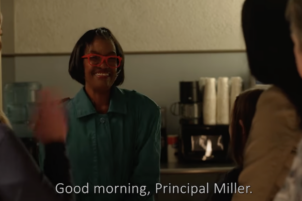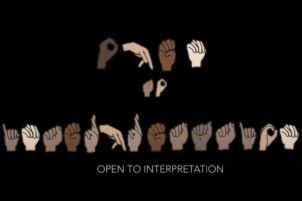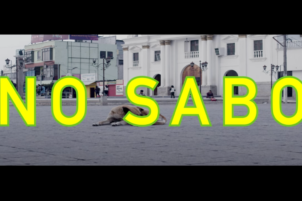Microsoft, Coca-Cola Make Intentional Decision to Be Inclusive
Rockville, Md., Feb. 4 – Mass media plays a huge part of what society believes and America’s favorite pastime besides football is watching their favorite commercials especially during the biggest primetime event of the year: The Super Bowl.
The Super Bowl preshow showcased inclusion as while Chloe X Halle and Gladys Knight sang America the Beautiful and the national anthem respectively, Deaf talent Aarron Loggins interpreted in ASL. Yet, CBS only showed him for a few seconds. To ensure true inclusion, the network could have shown him in picture-in-picture throughout the entire song. Furthermore, when a large American flag was spread out over the field, people with visible disabilities were absent.
Microsoft Promotes Accessibility for Children with Disabilities
What is important to note are the commercials showcasing disability. Microsoft’s ad used their entire air time to focus on disability inclusion by promoting their “Xbox Adaptive Controller,” which shows that kids are just kids regardless of their level of ability and they want to keep up with their friends when playing Xbox.
“What I like about the adaptive controller is now that everyone can play,” says Owen, a nine-year-old boy born with Escobar syndrome. “No matter how your body is or how fast you are, you can play. It’s a really good thing to have in our world.”
This is something all kids want.
“The disability market is worth $1 trillion, so marketing products to this community is profitable,” said Jennifer Laszlo Mizrahi, president of RespectAbility, a nonprofit organization fighting stigmas and advancing opportunities for people with disabilities. “But the inclusive Microsoft ad is not just a marketing ploy – it is part of Microsoft’s wholistic and organic DNA on every level. Microsoft proactively works to understand and capture the talents, innovation, loyalty, markets and opportunities from the 1.2 billion people with disabilities on earth.”
Microsoft’s Cross Disability Employee Resource Group (ERG) has a goal of ensuring that all of their employees with disabilities are able to perform to the best of their ability. This group is a key factor in the process of hiring and retaining employees with disabilities at Microsoft. The ERG enables employees at Microsoft to reach their full potential through inclusion, representation and access to accommodations. The ERG works to ensure best practices when it comes to ensuring that software, tools, building, and events that are accessible to all people with disabilities. This means collaborating with product teams to design, develop and build accessible Microsoft products and driving accessibility improvements in the work environment. Furthermore, in April 2015, Microsoft announced an Autism Hiring Program, aimed at recruiting more people with autism to fill roles such as software engineer or data analyst.
Coca-Cola Makes Intentional Choice to Include Visible Disability Representation
Coca-Cola’s “A Coke is a Coke” commercial, which is animated, included a character in wheelchair. Its underlying tone is that a coke is just a coke no matter what it looks like. That is the same idea the disability community strives for in society: People are just people no matter how different they are.
In 2017, RespectAbility tweeted Coca-Cola after it reran an ad from the 2014 Super Bowl, “It’s Beautiful,” which featured people of different backgrounds singing “America, The Beautiful” in different languages. When we asked where were the people with disabilities, the account responded: “While we cannot meaningfully represent every group in 1 minute, we value everyone and everything they bring to our country.”
In the past two years, Coca-Cola has made a much bigger effort to ensure the inclusion of people with disabilities.
Vincenzo Piscopo, a wheelchair user who works for Coca-Cola, previously talked about how people with disabilities are used to persevering and overcoming challenges, two traits of great employees. Piscopo believes that “when companies hire people with disabilities, they are actually adding value to their company.” When Piscopo sees people with disabilities “that are extremely brilliant” who are not being used to their potential, he feels they have “value that has been thrown to the garbage.”
“Why don’t we take advantage of that?” he added. He also talked about how he is working with senior management to show them the skills that people with disabilities bring to the table.
“Including an individual with a visible disability in a commercial does not happen by accident,” said Lauren Appelbaum, who leads RespectAbility’s Hollywood Inclusion efforts as the organization’s communications director. “Inclusion of people with disabilities must be an intentional effort. What we see on screen influences how we act in real life. Thus, when companies make the decision to include individuals with visible disabilities, they are helping to remove the stigmas that currently exist about interacting with individuals with disabilities.”
Many Brands Still Missing the Mark
Many brands that focused on diversity did well when it came to race and gender but failed when it came to disability inclusion.
Amazon had an opportunity to showcase disability in their commercial on Alexa and Amazon Prime, as these products and services can be beneficial in advancing productivity for someone with a disability. Rakuten, a company that gives cash back on shopping, had no disability representation; it missed an opportunity to market to the disability community, many of whom can and do shop online and want to save money. Walmart, a company that promoted the idea of inclusion, failed to include visible signs of disability. Hyundai could have had someone with a disability in the elevators. And the list goes on.
“An increase in positive, diverse and accurate portrayals of people with disabilities on television and film can significantly help end stigmas that limit their health and lives,” Mizrahi added. “Changing hearts, minds and behaviors takes great messages, delivery systems and message repetition. Diversity and inclusion processes also are needed inside companies so that diversity and accurate portrayals become natural and consistent.”







